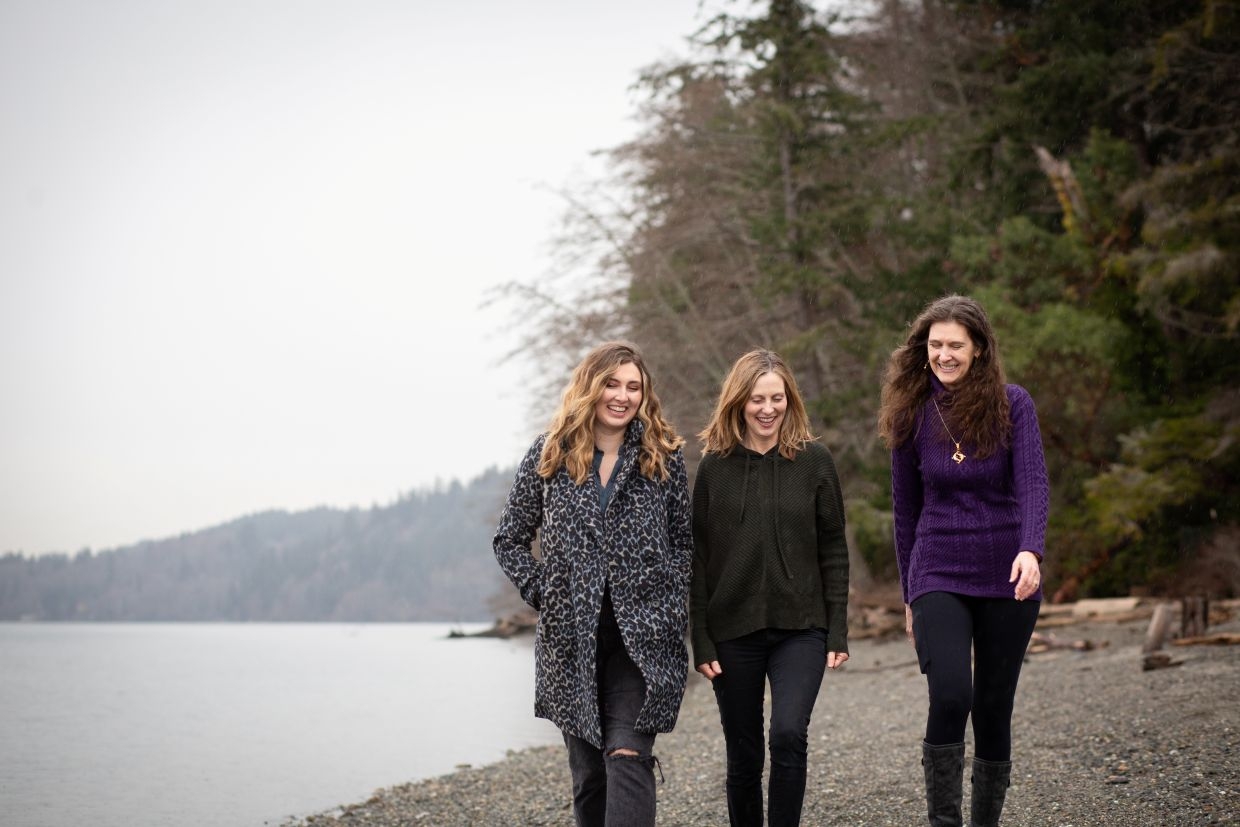How to help adoptees ‘Jump and Find Joy’ too

A response to Hoda Kotb’s interview on TODAY with Jenna & Friends, Part 1
Guest post by Sara Easterly, Kelsey Vander Vliet Ranyard, and Lori Holden
In late September, Hoda Kotb appeared on TODAY with Jenna & Friends to share about her new book, Jump and Find Joy. While Kotb’s appearance was inspiring in many ways, we were disappointed when the conversation shifted to adoptive parenting, with Kotb modeling to her legions of fans unhelpful beliefs, language, and practices for adoptive parents. As co-authors of Adoption Unfiltered (Bloomsbury), we were appalled that none of the conversation centered adopted children, honored their first attachments, or supported their long-term emotional health.
The first discouraging moment came when Kotb mentioned that her adoptive children had been asking about adoption. Conveying shock, Kotb said, “How do you tell that story to your kids?”
Problem #1 – Being unprepared to have conversations about adoption.
Pictures of Kotb’s two adopted, elementary-aged children flashed on screen, revealing that they were too young to give consent to their stories being aired on national TV, and at the same time, old enough to have known their adoption stories by the time questions came. Adoptive parents should not wait for their children to ask questions. Well-prepared adoptive parents start telling the story immediately after placement—not because the infant will understand, but so that the parent becomes practiced and comfortable talking about adoption. To fully signal to adoptees that it is safe to talk about the hard subject of adoption, parents should take the lead and talk openly, and often, about adoption in truthful, age-appropriate ways. These should not be once-every-few-years conversations, as Kotb alluded.
Kotb shared her first attempt at the story: “You weren’t born in my tummy. You were born in my heart.”
Problem #2 – Using language that doesn’t take child development into account.
Young children are literal. While it may feel loving for an adoptive parent to convey how involved their heart is in their adoptee’s story, children take parents’ words at face value. As children eventually grasp how births actually happen, they may find themselves on an anatomical goose chase, trying to envision exactly how they were born from a heart.
Problem #3 – Centering the adoptive parent in the story, not the adoptee.
Focusing on the adoptive parent in an adoption story centers the wrong person. Adoption, after all, is supposed to orient around the adoptee. Kotb’s focus on being born in her heart equated to saying, “Your tragedy was for my own benefit.”
Problem #4 – Not making space for the inherent loss in adoption.
All adoption begins with loss, and credible adoption stories do not gloss over its existence to present an overly simplistic view of adoption. This sets up an unhealthy cycle in which adoptees must hide or ignore their grief, counter to what we know developmentally is the path to resilience and maturation. Adoptees must have opportunities to feel and express their sadness—key to adapting and ultimately being able to feel joy alongside the loss. As adoptee Sara Easterly writes in Adoption Unfiltered, “Your willingness to come alongside us in our sadness, or gently help draw it out when it’s missing, is perhaps what adoptees need the most.”
Kotb later explained that as her children grew older, she needed to correct the story, to clarify that all children begin in someone’s tummy, and her children did, too. Speaking of her daughter’s birth mother, Kotb told her child, “She’s like your birth mother angel, and she’s there all the time. God gave her the job to carry you, so that she could give you to me.”
Problem #5 – Overspiritualizing the child’s story is deeply problematic, and might turn your child away from God.
Birth mothers are not “birth mother angels.” For starters, this places them on an unrealistic pedestal and may be offensive to mothers who have different spiritual beliefs. Like any of us, birth mothers are well-rounded, complex human beings, and their complete stories matter. As Kelsey Vander Vliet Ranyard writes in Adoption Unfiltered, “How we exist, cope, grieve, find joy, and heal, are all important stories.” Those stories matter a lot to adoptees, who seek to know and understand a genuine person to whom they are connected.
Further, as children age, they start to question a God who deems one mother a mere birthing vessel while glorifying another. Adoptees will always be tied to their first mothers genetically, emotionally, and spiritually. The presentation of a God who chooses sides is confusing and can feel like a betrayal that erodes trust in a benevolent God, as well as impact an adoptee’s sense of worth. As Sara Easterly wrote in The Dangers of Adoptees as Blessings, “Feeling that God is all about our adoptive parents, and we’re merely a tool to bring them joy, fulfillment, and family, can reinforce a belief that we don’t matter, further silence us, and alienate us from the God our faithful parents are desiring to point us toward.”
This is Part 1 of a two-part post. Read Part 2 here.
About the authors: Adoptee Sara Easterly, birth parent Kelsey Vander Vliet Ranyard, and adoptive parent Lori Holden are co-authors of Adoption Unfiltered: Revelations From Adoptees, Birth Parents, Adoptive Parents, and Allies (Bloomsbury), which released in paperback on Oct. 16. Collectively, the authors bring more than 75 years of lived experience relating to adoption and are recognized throughout the adoption community as thought leaders, influencers, and bridge-builders. Photo by Lena Eivy.